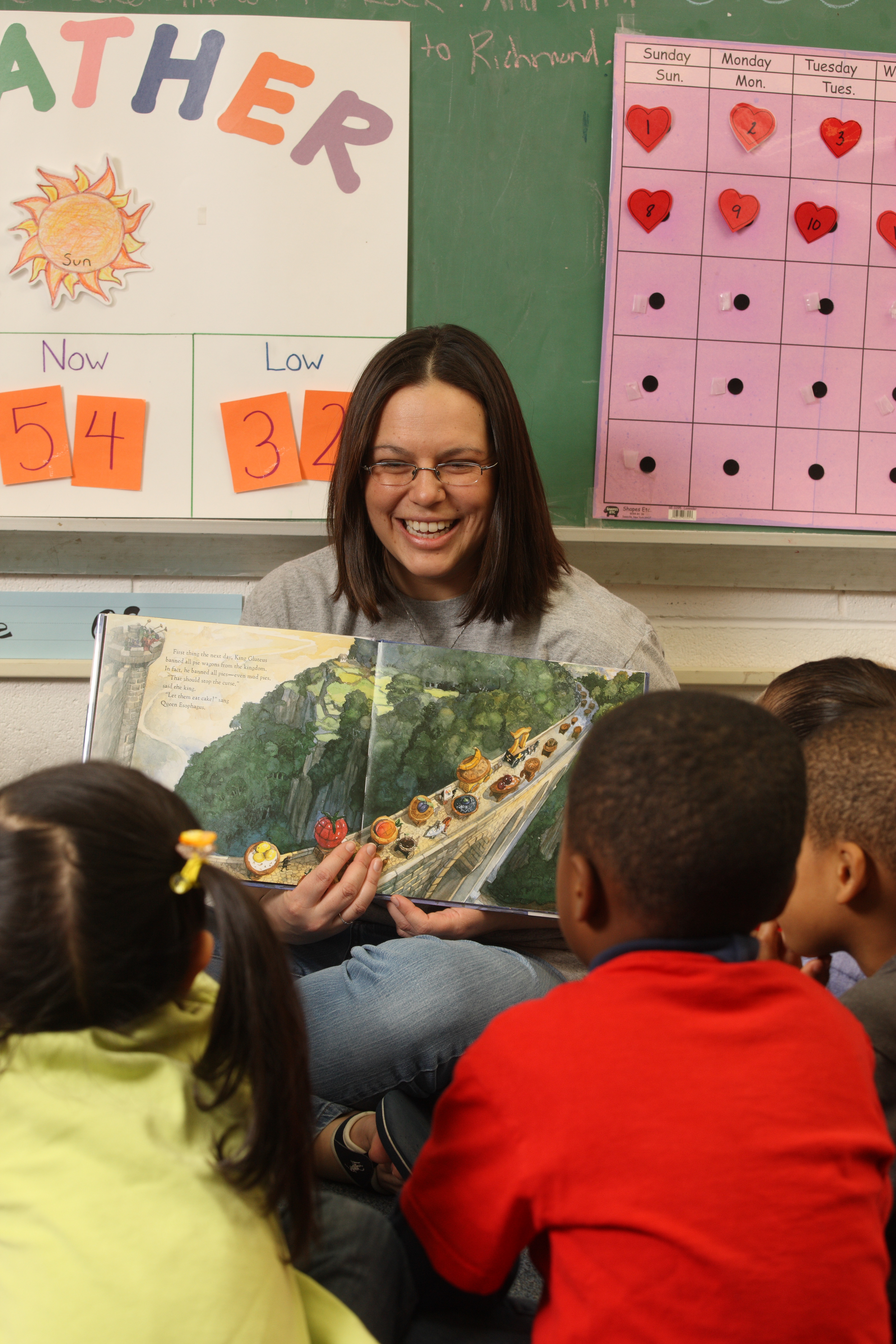A new study conducted by education researchers at the University of Virginia finds that about one-third of Virginia students lack at least one important element of readiness for kindergarten.
At the request of the Virginia General Assembly, a team of researchers at the Center for Advanced Study of Teaching and Learning at the University of Virginia Curry School of Education were tasked with identifying and implementing appropriate assessments of students’ skills as they entered kindergarten.
Their report, submitted today, is the product of a two-year study, the Virginia Kindergarten Readiness Project. It evaluated kindergarteners’ skills in four domains of development: literacy, math, self-regulation – a child’s own management of their behavior, emotions and attention – and social development.
“We chose to measure these four skill domains, because research tells us that meeting the benchmarks in early literacy and math are indicative of later academic success,” said Amanda Williford, a U.Va. research assistant professor and the study’s lead investigator.. “And decades of research demonstrates that good social skills and self-control are pivotal for doing well in school and with peers.”
According to Williford, children who enter kindergarten behind their peers in school readiness skills are at significant risk for long-term negative school outcomes.
“Without early intervention, these children are more likely to fall below grade level expectations, to be retained in school, to be placed in special education and to drop out of high school,” Williford said.
Consistent with prior research, kindergarten readiness was defined for this report as performing above a designated threshold across each of the assessed domains. Students were identified as “not ready” if they performed below the designated threshold in any of the four domains.
This snapshot suggests that about one-third of children arrive at kindergarten unprepared in one or more of the four learning domains. Twenty percent of Virginia kindergarteners lacked key skills in only one of the early learning domains, and 15 percent demonstrate a lack of readiness in two or more domains. When looking at how children perform across the early learning domains, children performed better in literacy and math compared to social skills and self-regulation.
The sole statewide standard previously used in assessing Virginia kindergarteners is the Phonological Awareness Literacy Screening, a tool developed by U.Va. faculty members that measures skills only in the area of literacy. The project research team’s first phase of work was identifying other tools that could be used alongside PALS to measure kindergarteners’ skill levels in the other three areas.
“The majority of states are in the process of measuring kindergarten readiness across a variety of skill domains, in an effort to get a more comprehensive picture of children’s development as they enter kindergarten,” Williford said. “Having a clear picture of children’s performance in multiple areas can better inform how to support students in becoming successful.”
According to the report, the additional measures selected not only complement the PALS assessment, but also give the state, districts, schools and teachers valuable information about children’s skills in other performance areas that are key to success.
The selected measures included the Tools for Early Assessment in Mathematics-Short Form, a teacher-administered, direct assessment of children’s number and geometric skills; and the Child Behavior Rating Scale, a rating scale completed online by the teacher that measures children’s self-regulation skills (for instance, the extent to which the child can follow classroom rules and concentrate on activities) and social skills (how well the child cooperates with peers and complies with teacher directives). Teachers conducted these additional readiness assessments immediately prior to their administration of PALS.
The research team, co-led by CASTL’s Jason Downer and Bridget Hamre, then used the tests to assess more than 2,000 kindergarteners in Virginia. In doing so, the researchers created the first-ever comprehensive snapshot of school readiness in Virginia.
According to Williford, the research team’s ultimate goal was to select assessments that would provide information for two main purposes: to inform policy decisions and inform instruction.
With the report having been commissioned by the Virginia legislature, the purpose of providing information to policymakers was obvious. However, the researchers also looked at how these assessments impact classrooms.
The project team asked the teachers with whom they worked for a variety of feedback, including how they felt about the time and effort it took to conduct the assessments. “We knew from the beginning that we needed to recommend assessments that teachers were able to use and that provided them meaningful information,” Williford said.
The report describes that many classrooms enroll a number of children who are not well-prepared for kindergarten. In 40 percent of the classrooms in the commonwealth, at least 40 percent of students are unprepared in at least one key learning domain.
“Our hope is that the data gained from these assessments can better inform policymakers interested in supporting early learning, and can provide useful information to kindergarten teachers about the students in their class and how to meet their needs instructionally,” Williford said. “It is also our hope that this data can be used to shape instruction in early childhood classrooms, too.”
The researchers laid out a set of recommendations in the report, including a statewide rollout of this comprehensive readiness study, and how to make data from the assessments accessible and useful to teachers so they can better support children’s learning and development.
Elevate Early Education, a statewide collaborative venture supported through public and private investments, sponsored the study. The state appropriated $250,000 funded through the Virginia Department of Social Services from former Gov. Bob McDonnell’s K-12 Reform Agenda, which was paired with $500,000 in private donations from the Batten Educational Achievement Fund of the Hampton Roads Community Foundation.
Media Contact
Article Information
January 8, 2015
/content/comprehensive-report-school-readiness-finds-some-virginia-students-lacking

